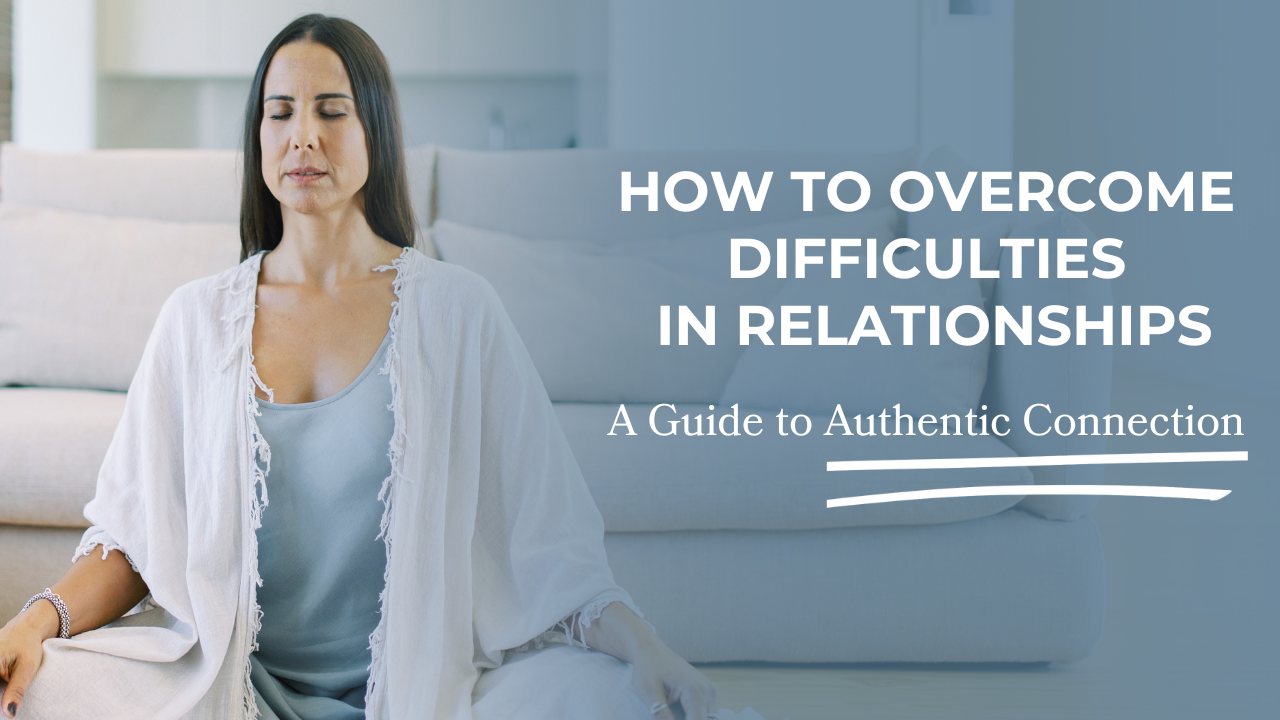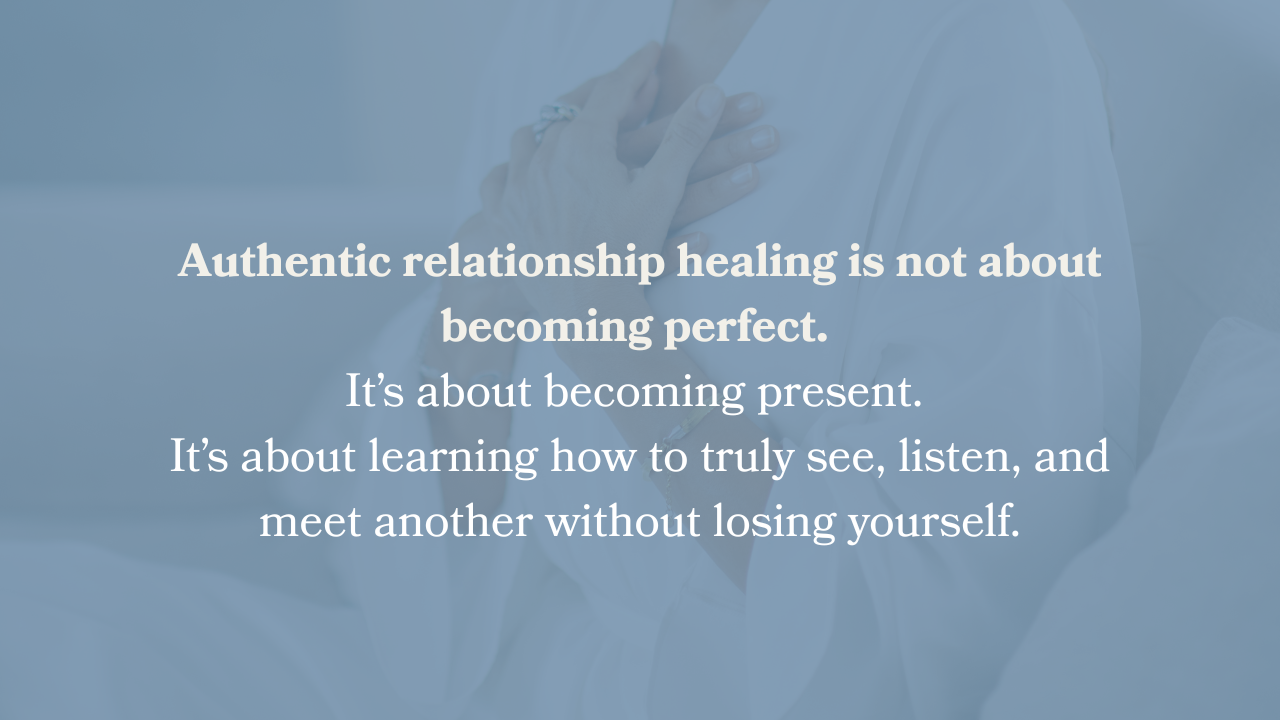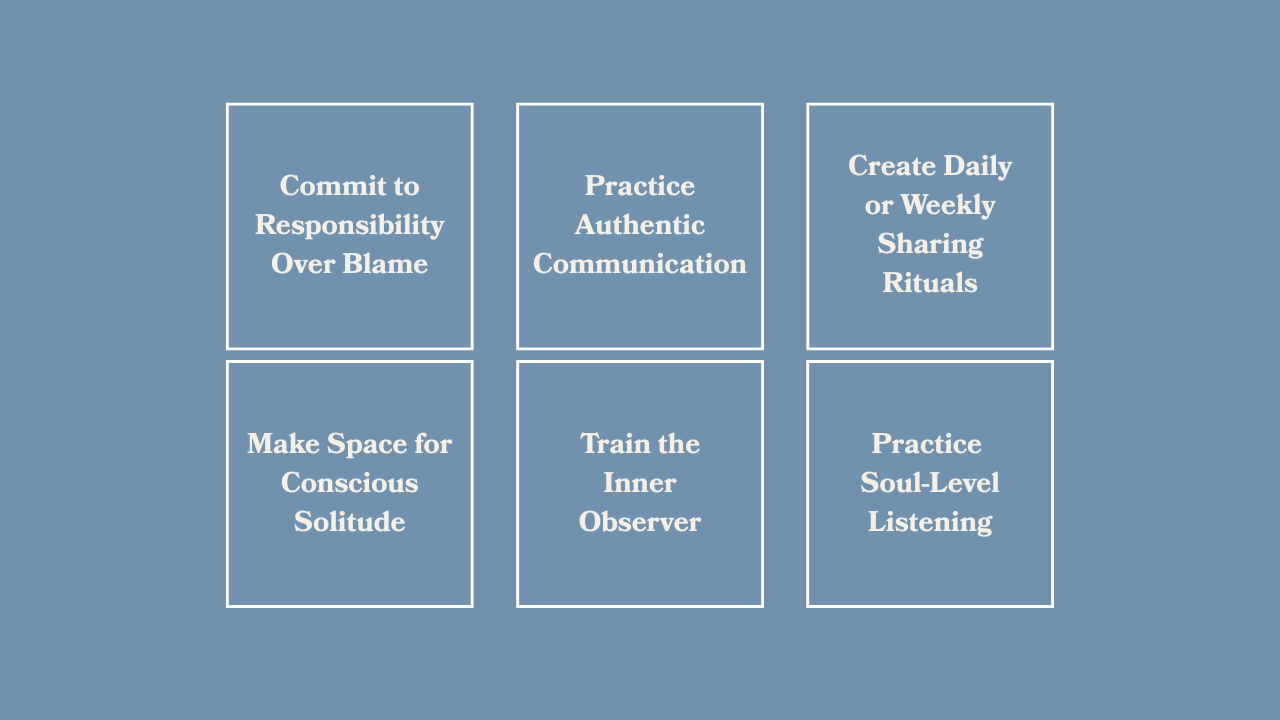How to Overcome Difficulties in Relationships: A Guide to Authentic Connection
Jul 17, 2025
Relationships are one of life’s most beautiful gifts and also one of its greatest challenges.
When rooted in truth, love becomes a source of liberation.
But when clouded by wounds, unconscious patterns, and poor communication, relationships become battlegrounds where the soul contracts instead of expands.
This guide is for those who yearn for more: more honesty, more intimacy, more peace, more presence. Whether you're navigating the complexities of romantic partnership, friendship, or family, this guide will show you how to face relational difficulty not as a curse, but as a doorway to transformation.
In this guide, we’ll explore the root causes of conflict, the steps toward authentic communication, the healing power of solitude, and practices that foster true connection.
What Is Relationship Healing, and Why Does It Matter?
To heal a relationship, we must first understand what we are healing from. We’re not just fixing surface arguments—we’re healing from lifetimes of emotional disconnection, childhood wounds, unspoken needs, and internalized fear.

When you commit to this path, relationships stop being sources of frustration and become sacred containers for mutual evolution.
The Roots of Relationship Difficulty: Childhood Wounds and Emotional Games
Many relational struggles stem from unmet childhood needs. When we weren’t seen, heard, or loved in a healthy way, we developed strategies to survive: pleasing, manipulating, controlling, shutting down.
In adulthood, these unconscious patterns replay:
- We shout or withdraw to feel powerful.
- We blame instead of owning our needs.
- We wait to be rescued instead of expressing vulnerability.
Without realizing it, we bring the wounded child into our relationships, expecting our partners to fix what our caregivers couldn’t.
Terms to Know
- Authentic Communication: Speaking your feelings and needs without blame or manipulation.
- Presence: The capacity to stay emotionally grounded, even in discomfort.
- Solitude Practice: Conscious time alone to reconnect with your essence.
- Inner Observer: The part of you that watches thoughts and emotions without identifying with them.
The Pros and Cons of Facing Relationship Difficulty
Pros:
- Creates emotional intimacy.
- Encourages self-awareness and growth.
- Builds deeper trust and respect.
Cons:
- Can be emotionally intense.
- Requires time, effort, and vulnerability.
- May reveal incompatibilities or painful truths.
Examples of Authentic Relationship Transformation
- A couple shifts from constant arguments to weekly listening rituals and reports increased intimacy.
- A woman chooses one night per week of solitude and finds clarity about her emotional needs.
- A man practices non-reactive communication for 30 days and sees his partner naturally open up and soften.
How to Overcome Difficulties in Relationships: A Step-by-Step Guide

Step 1: Commit to Responsibility Over Blame
Speak from your experience. Instead of “You made me angry,” say, “I feel angry when I hear shouting.” Own your emotions.
Step 2: Practice Authentic Communication
Follow this structure:
- Feeling: “I feel...”
- Triggering fact: “When this happens...”
- Impact: “I tend to shut down / get scared...”
- Request: “I’d like us to try speaking more calmly.”
Repeat this every time—even when it’s hard. Discipline builds new relational pathways.
Step 3: Create Daily or Weekly Sharing Rituals
Each partner shares for 3–5 minutes. No advice. No interruption. Just listening.
This practice builds:
- Emotional safety
- Nervous system regulation
- Deeper intimacy
Even once a week can change your entire dynamic.
Step 4: Make Space for Conscious Solitude
True connection requires that you also know how to return to yourself. Practice:
- One silent retreat or nature journey per year.
- Five minutes of daily breath awareness.
- Sleeping alone one night per week (if possible).
Solitude helps you meet your truth—so you stop expecting others to do it for you.
Step 5: Train the Inner Observer
When conflict arises, don’t react immediately. Sit. Breathe. Watch what arises in your body and mind without engaging.
This practice helps you stop unconscious projections and meet reality with clarity.
Step 6: Practice Soul-Level Listening
Listening is not just about silence—it’s about presence. Even if you say nothing, but are judging or mentally attacking the other, they will feel it. The soul knows.
Train yourself to listen without needing to fix, correct, or defend. Just be there.
Tips and Reminders for Relationship Work
- Start small. One authentic sentence a day is enough.
- Respect your and your partner’s timing. True transformation is never forced.
- Don’t use “truth” as a weapon. Truth without love is still violence.
- Celebrate progress. Even tiny moments of presence are precious.
Analyzing Relationship Health
To assess the health of your relationship, ask:
- Do we listen to each other without defending?
- Do we honor each other’s solitude and truth?
- Do we feel more ourselves in this connection—or less?
The more “yes” answers you find, the more conscious your relationship is becoming.
Healing relationships takes courage. But the reward is intimacy—not just with others, but with yourself. When you learn to show up honestly, listen without judgment, and meet yourself in solitude, you become the kind of partner, friend, and human this world needs more of.
Let your relationships be your practice ground for awakening.
Let them be sacred.
Let them be real.
Stay connected with news and updates!
Join our mailing list to receive the latest news and updates from our team.
Don't worry, your information will not be shared.

